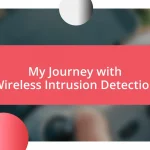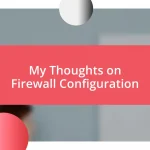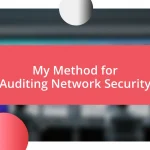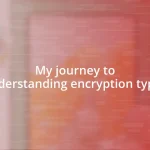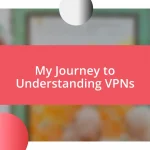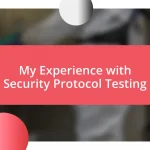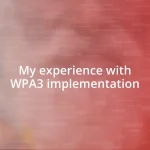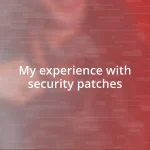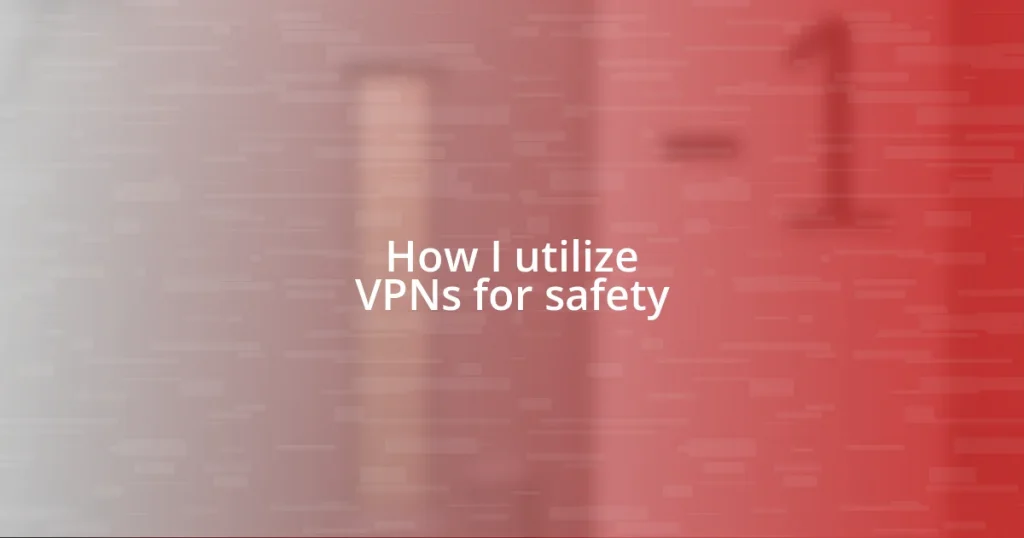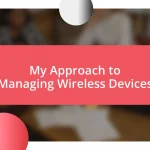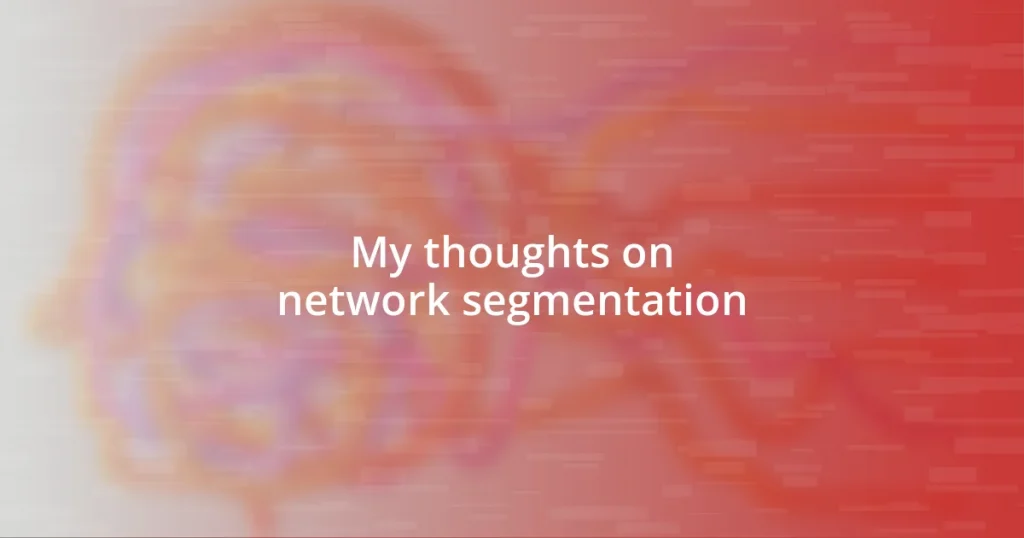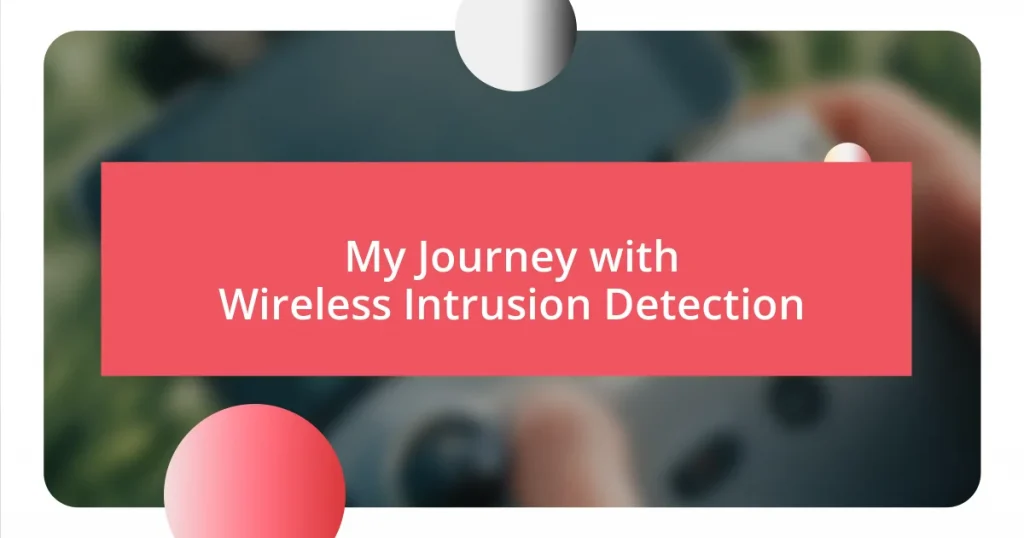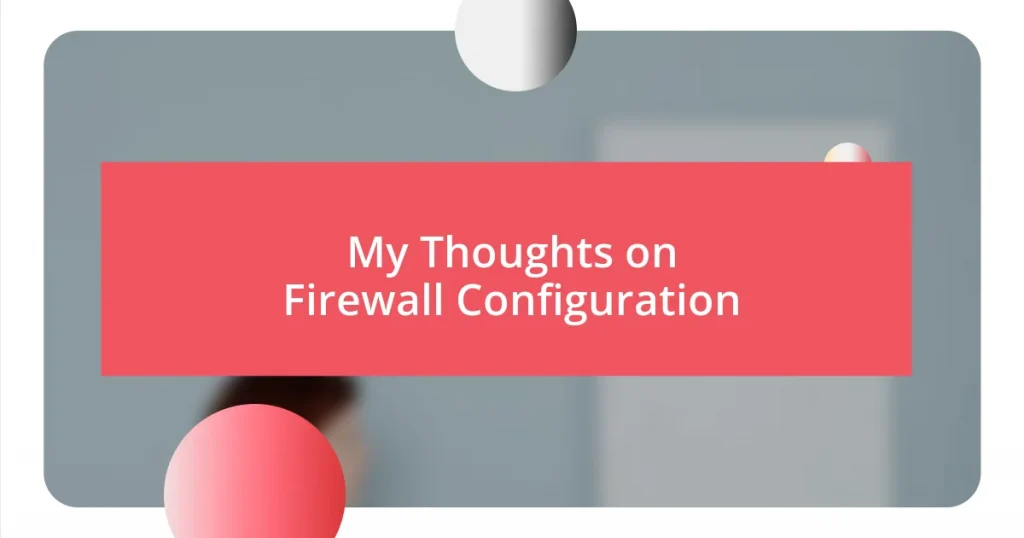Key takeaways:
- Using a VPN significantly enhances online safety by encrypting data and masking IP addresses, providing peace of mind while browsing.
- When choosing a VPN, prioritize features like strong encryption, a no-logs policy, speed, and customer support for a better experience.
- Regularly evaluate VPN performance and security, including connection settings and potential DNS leaks, while combining it with additional security measures for comprehensive protection.
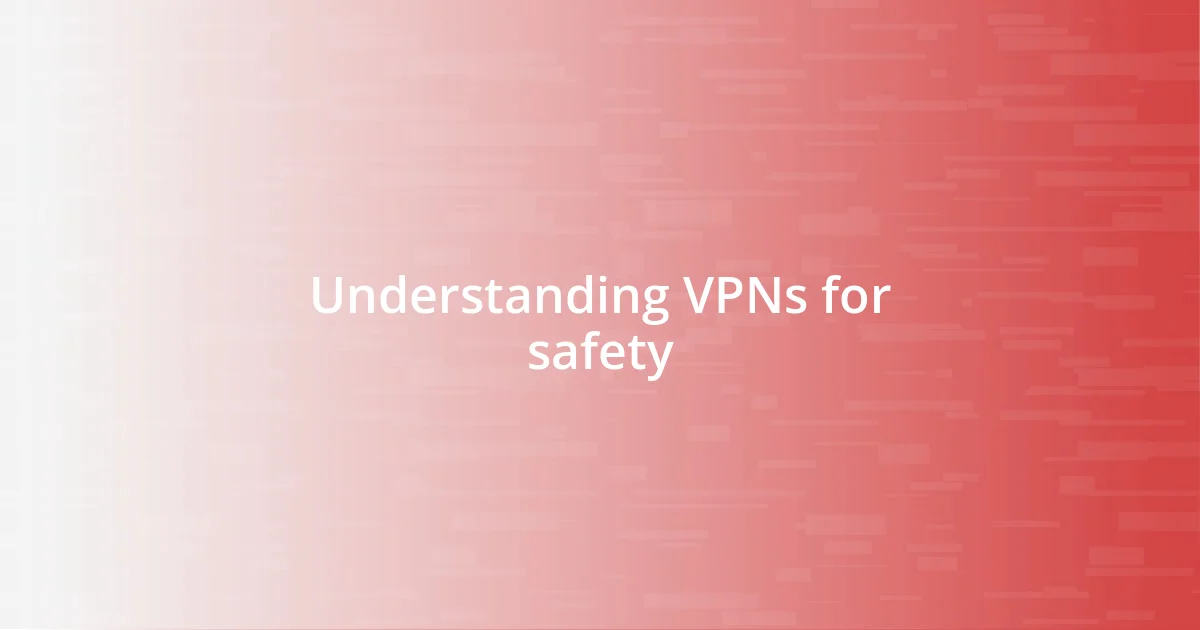
Understanding VPNs for safety
When I first learned about VPNs, I was surprised by their potential to enhance online safety. A Virtual Private Network, or VPN, creates a secure tunnel for your internet traffic, protecting your data from prying eyes. It’s like having your own private road on the internet, where only you have the keys to unlock the information traveling through it.
Imagine logging into a public Wi-Fi network at a café, surrounded by people. How secure do you actually feel while entering sensitive information? This was a concern for me too, particularly when I realized that anyone could snoop on unprotected connections. That’s when I decided to invest in a VPN, and it completely transformed how I browse—now I can share my thoughts and experiences without constantly worrying about data breaches.
What truly struck me about using a VPN was the calming reassurance it provided. With every click, I felt empowered knowing that my data was not just floating around in the digital abyss. It made me ponder how many personal stories and treasures we put at risk each day online, simply by not taking these safety measures. Using a VPN isn’t just about protection; it’s about reclaiming my peace of mind in an increasingly interconnected world.
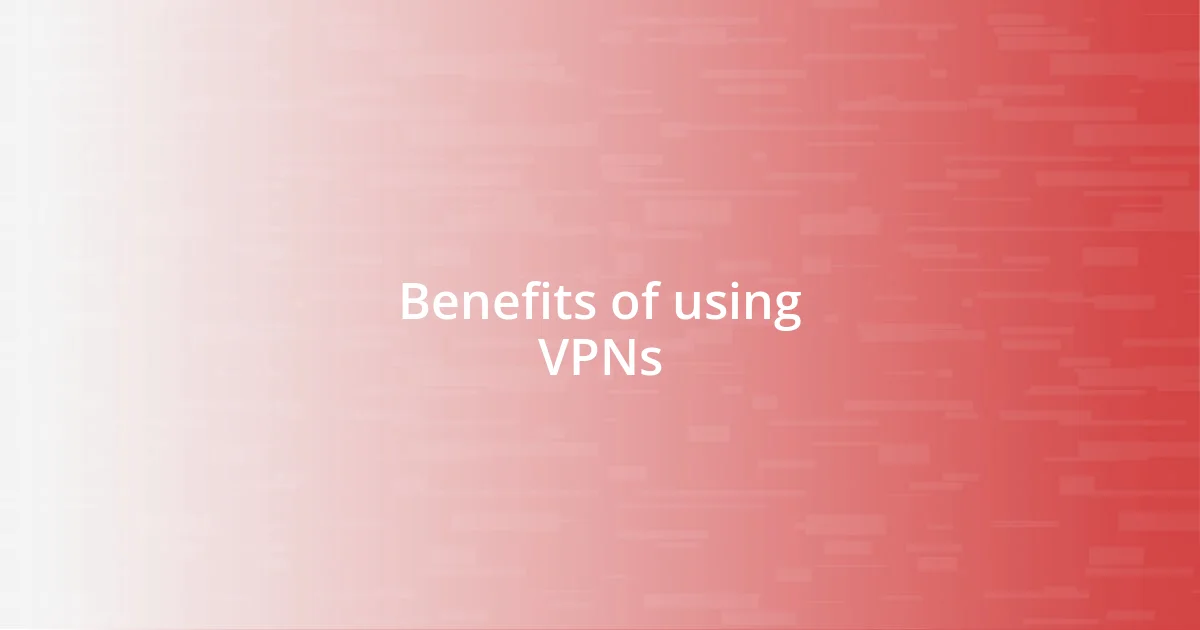
Benefits of using VPNs
I can’t emphasize enough how using a VPN significantly enhances my online safety. With features like encryption, it’s like wrapping my data in protective layers. There’s this undeniable peace that washes over me when I use a VPN. Even when I’m working from a bustling coffee shop, I can dive into my emails or bank details without the nagging worry of eavesdroppers. The extra layer of anonymity is not just a safety net; it’s a comfort I didn’t realize I needed until I experienced it.
Here are some key benefits I’ve noticed since making VPNs a regular part of my online routine:
- Enhanced Privacy: Your IP address is masked, making it harder for websites and advertisers to track your activity.
- Data Protection: Encryption safeguards sensitive information, particularly on public networks.
- Access to Restricted Content: I can stream shows and access websites that may be blocked in my location.
- Security on Public Wi-Fi: Using a VPN on public networks helps prevent unauthorized access to my accounts.
- Anonymity: Browsing becomes much more private, allowing me to explore the internet without the fear of being monitored.
These benefits aren’t just technical points; they represent real-world improvements in how I experience the web. It’s like finally finding the right fit in a world of mismatched puzzles.
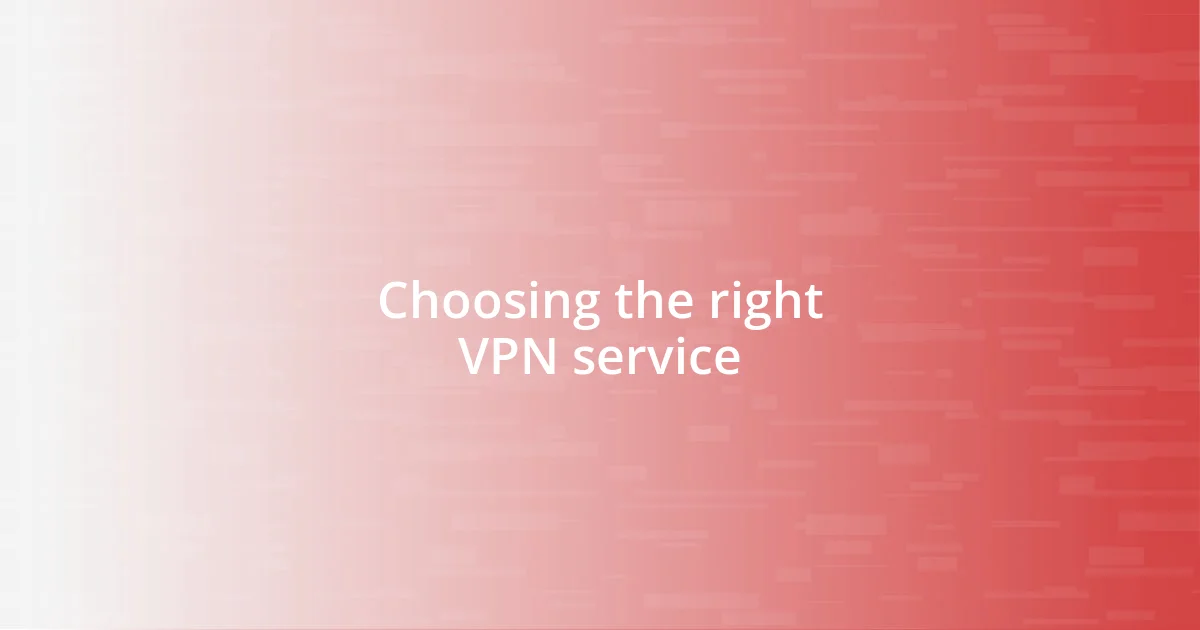
Choosing the right VPN service
Choosing the right VPN service can be quite a journey, much like selecting the perfect travel companion. I’ve come to realize that not all VPNs are created equal. For me, it’s essential to look for a provider that offers robust encryption methods and a no-logs policy, which means they don’t track or store my online activities. For instance, when I switched to a VPN that emphasizes transparency regarding data handling, it felt like a weight was lifted off my shoulders.
Considering various plans and pricing options is crucial too. I remember feeling overwhelmed by the choices available until I narrowed my search to those that offered free trials or money-back guarantees. It’s a smart way to test whether a service meets my needs without committing right away. Comparing speed and server locations was another eye-opener for me. I once struggled with buffering while streaming my favorite shows until I realized that this specific VPN service had a subpar server in my area.
To make the decision process easier, here’s a simple comparison table summarizing key aspects I recommend checking out when choosing a VPN:
| Feature | Importance |
|---|---|
| Encryption Level | Protects your data from hackers |
| No-Logs Policy | Ensures privacy and anonymity |
| Speed | Affects streaming and browsing experience |
| Server Locations | Enables access to global content |
| Customer Support | Assistance when issues arise |
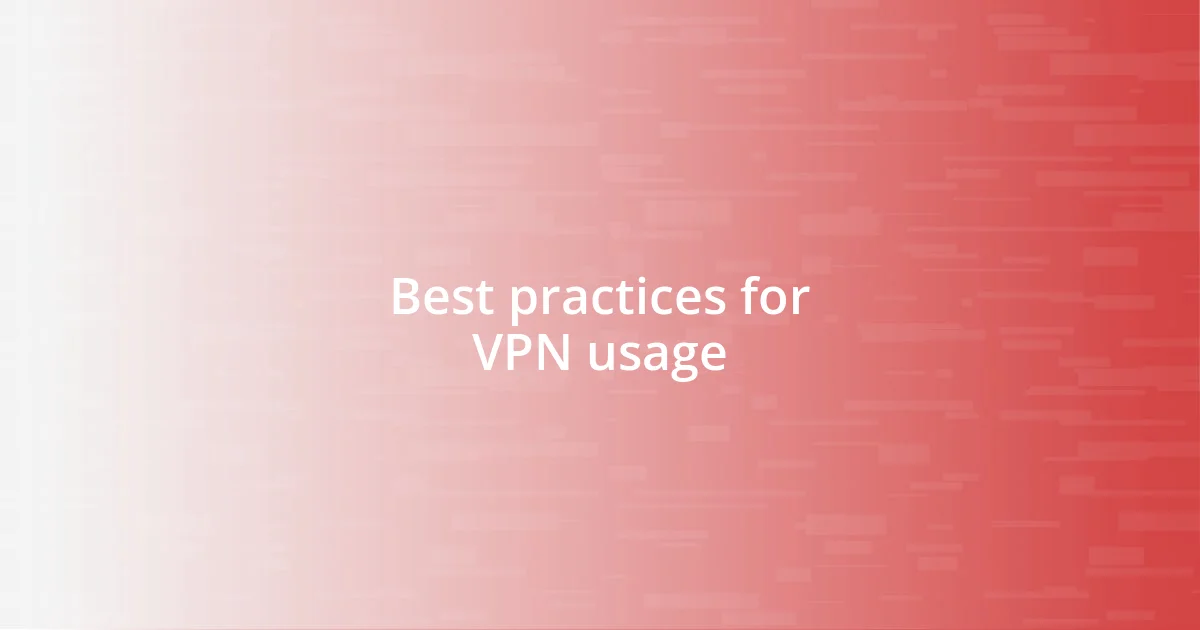
Best practices for VPN usage
When I’m using a VPN, I always ensure that I connect to a server that’s appropriate for my needs. For instance, I’ve learned the hard way that not every server offers the same performance. One time, I connected to a distant server to access content from another country, only to find myself frustrated by constant buffering. Now, I regularly check for optimized servers that promise better speeds, which completely transforms my streaming experience.
I also make it a habit to update my VPN software regularly. It might sound tedious, but I’ve discovered that keeping my VPN up to date fixes bugs and enhances security. I remember a time when an outdated version lagged during a crucial video call while discussing sensitive project details. That experience taught me the importance of maintaining my tools; prompt updates can be the difference between smooth sailing and a rocky journey.
Lastly, I don’t just connect to any public Wi-Fi without a VPN. I’ve seen too many friends fall victim to cyber threats in such settings. Whenever I step into a café or airport, I remind myself: is this network truly secure? Using a VPN on these public networks gives me confidence to browse freely without the constant worry of data theft, transforming a potential security nightmare into a relaxed and enjoyable experience.
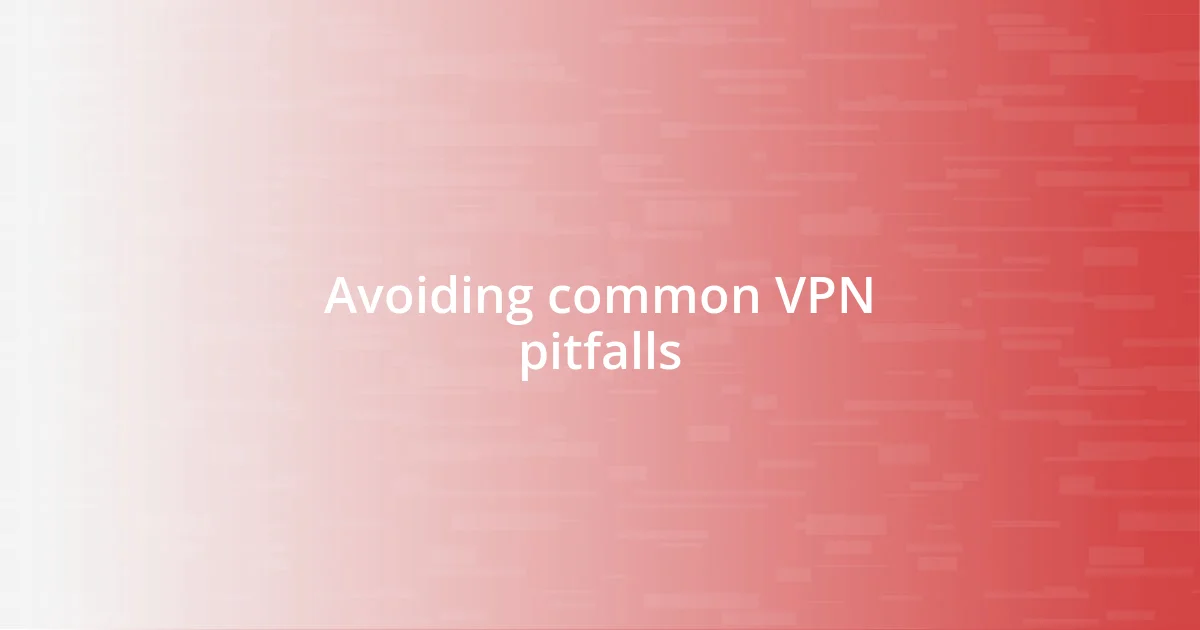
Avoiding common VPN pitfalls
When using a VPN, one common pitfall I’ve encountered is overlooking the importance of connection settings. I recall a time when I hastily connected without adjusting the protocol options, and my speeds plummeted. It dawned on me: taking a moment to choose the right protocol can make a world of difference. Have you ever experienced frustratingly slow speeds while streaming? Adjusting the protocol turned that around for me and made my experience much more enjoyable.
Another mistake I often see is people neglecting to check for DNS leaks. I didn’t think much about it until I discovered that my ISP could still see my browsing activities, defeating the purpose of using a VPN in the first place. It’s a simple test that can save you from a false sense of security. I now run these checks regularly, and it feels like having a safety net that ensures my online privacy is genuinely protected.
Also, it’s so easy to forget that a VPN is just one layer of security. I realized that after a phishing email slipped through my defenses despite my VPN being active. To me, it’s clear: relying solely on a VPN isn’t enough. Implementing additional security measures, like two-factor authentication and being cautious about the links I click, is essential for a fortified online presence. How about you? Have you combined other strategies with your VPN use? It’s a comprehensive approach that truly enhances my online safety.
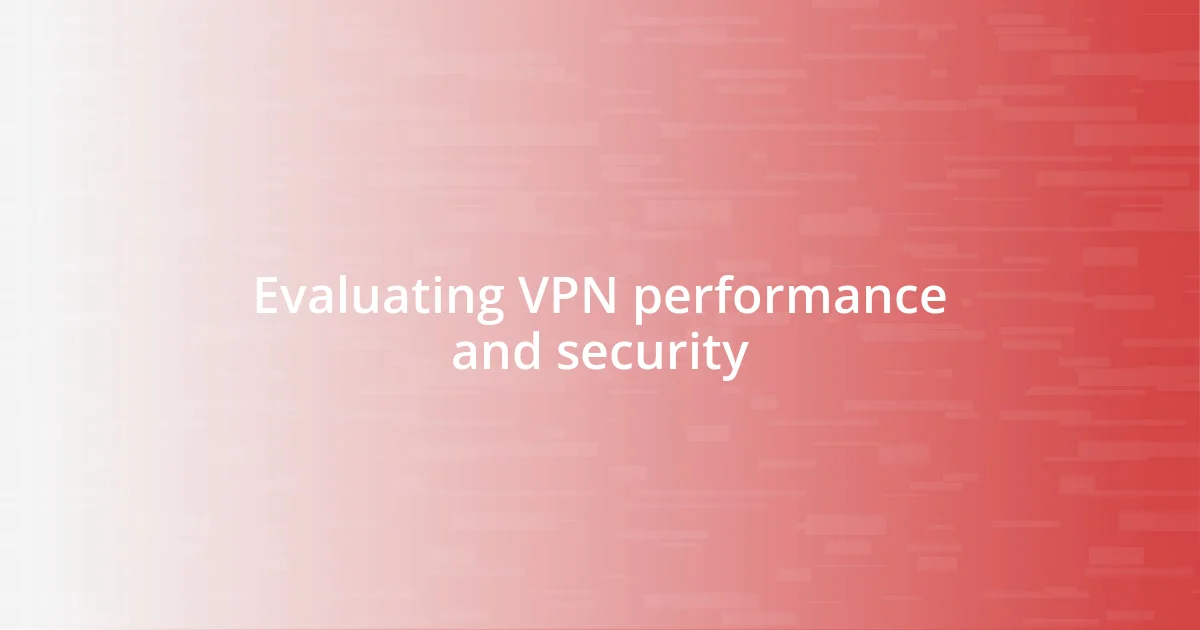
Evaluating VPN performance and security
Evaluating the performance and security of your VPN is crucial for ensuring you’re getting the most out of your investment. I always start by running speed tests on different servers to see which ones provide the best connection. One time, I was in a rush to finish a project and connected to a server that promised high speeds, only to be disappointed when my download was slower than expected. Now, I make it a priority to test performance before settling on a server, because I’ve discovered that the right choice can drastically affect my productivity.
Beyond speed, I can’t stress enough the importance of testing for security features within a VPN. I remember feeling a rush of anxiety when I accidentally found out my VPN wasn’t using an adequate encryption protocol on a crucial call. The moment highlighted how vital it is to dive deep into the settings and ensure I’m using the strongest protection available. Regularly reviewing the VPN’s security capabilities helps me feel secure during online activities.
Lastly, user reviews and expert opinions are goldmines for evaluating a VPN’s reliability. I often find myself scrolling through forums or tech blogs, looking for those real-life experiences. Just last month, I read about someone’s struggle with a VPN that had a woefully ineffective kill switch, leaving their data exposed. It made me reflect; a VPN should not just promise security, it should deliver. I now diligently check user feedback and updates to ensure my VPN aligns with my safety expectations. Have you ever considered the impact of others’ experiences on your own VPN choice? It’s made all the difference for me.

